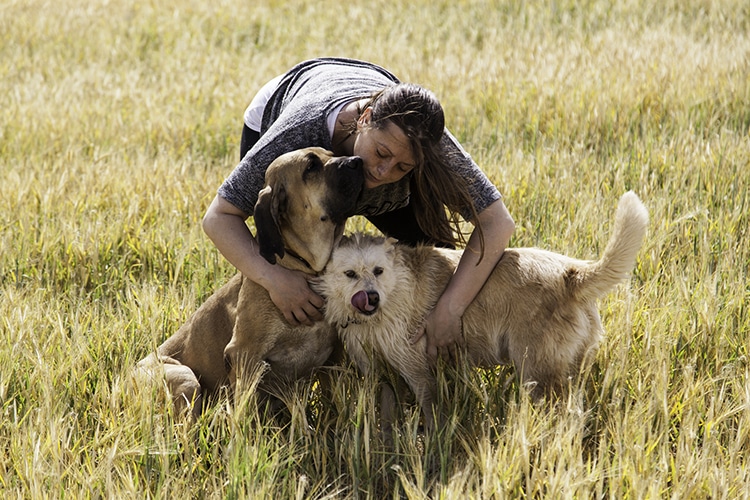
Photo: celiafoto/Depositphotos
We all love our animal friends, and there’s nothing better than spending some downtime with a loyal canine companion. In fact, science now suggests that interaction with a pet is comparable to one with human friends. According to the new study, petting and stroking our furry friends may even give us the same benefits as socializing, and the evidence of it lies in our neurology.
Previous research has proven that the prefrontal cortex of the brain is a key region that’s active during different aspects of socializing, and in processing social interactions. The ability to understand what another person might be thinking and understanding the self in relation to others are both related to this frontal area of our brains. This means that the frontal lobe is also important for investigating the impact and effects of our interactions between humans and animals.
In this latest study, the participants first had interactions with real dogs—a 6-year-old female Jack Russell Terrier, a 4-year-old female Goldendoodle, and a 4-year-old Golden Retriever. They then interacted with a plush animal—a toy lion called Leo that had a hot water bottle tucked into the body to simulate the sensation of soft fur, animal body temperature, and the weight of a dog.
The researchers measured the oxygenated, deoxygenated, and total hemoglobin and oxygen saturation of the blood in the frontal lobe of the participants’ brains, to assess their brain activity while they spent time in physical contact with the real animals. They then measured the same with the interactions with the inanimate Leo. The study proved a greater activation in this socially related part of the brain when the study participants interacted with the real dogs, in comparison with their interactions with the toy lion.
Interacting with an animal is an important social opportunity that becomes emotionally relevant and important, say the researchers. This kind of research also points to the value of close animals to vulnerable people in our society. There are many people whose opportunities for regular social contact are reduced; such as the elderly, those with cognitive differences, and people experiencing homelessness. “Integrating animals into therapeutic interventions might therefore be a promising approach for improving emotional involvement and attention,” the researchers explain. So, the evidence ultimately suggests that more time with your dog is as good as hanging out in the company of other humans—the activity in our brains show us this best.
A recent study has revealed that petting dogs may give us the same benefits as socializing with our human friends.

Photo: Yuliasis/Depositphotos
The research showed that interacting with dogs activates the prefrontal cortex of the brain, the same area that is active during social interactions with other humans.

Photo: Ijsphotography/Depositphotos
h/t: [IFLScience]
Related Articles:
Study Shows That Petting a Dog Can Have Long-Lasting Health Benefits
New Study Finds That Dogs Can Help You Live Longer
11-Year-Old Boy Documents Every Dog He’s Ever Petted with Adorable Photos
Man Experiencing Homelessness Throws a Birthday Party for His Dogs, Then His Life Changes
